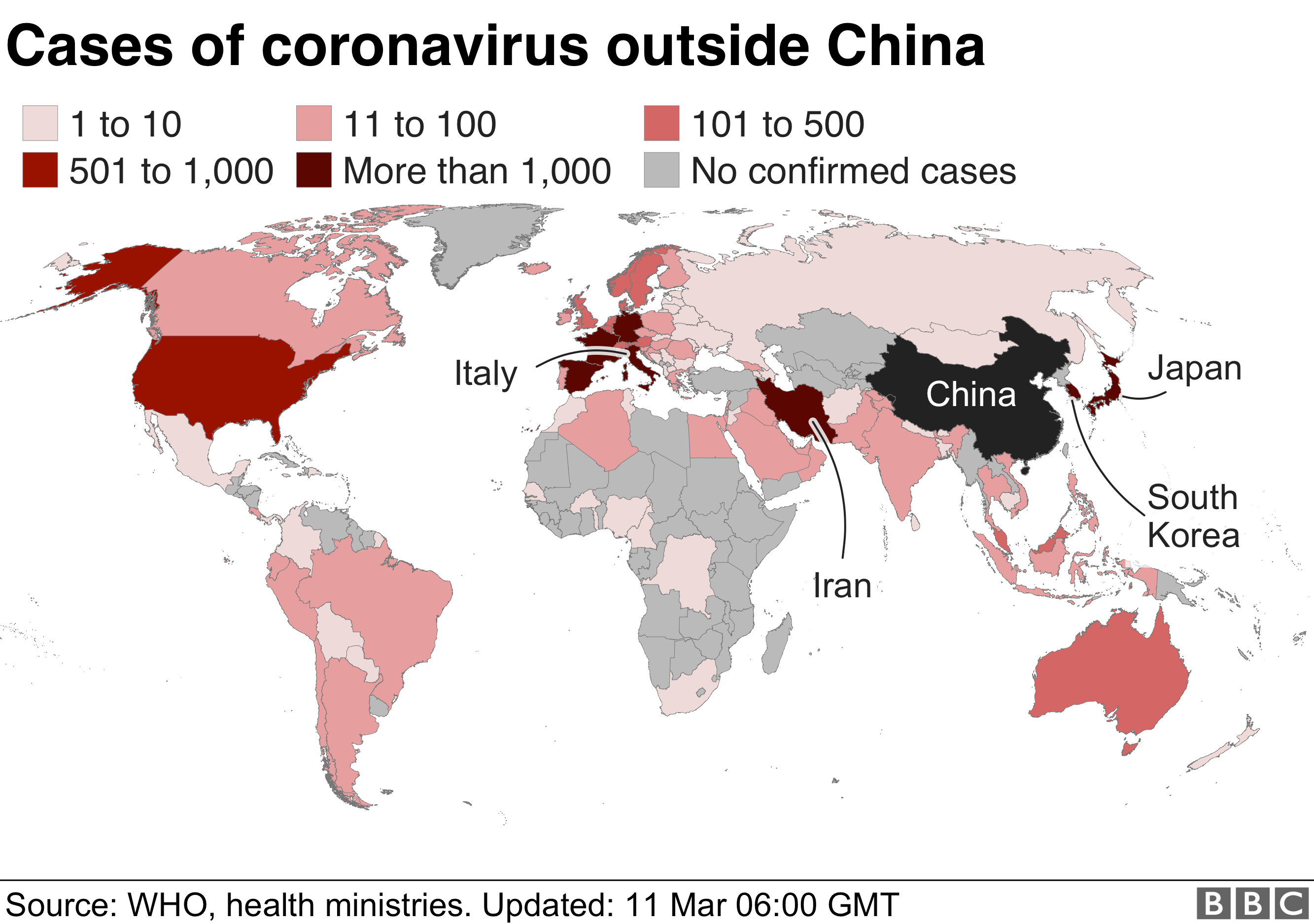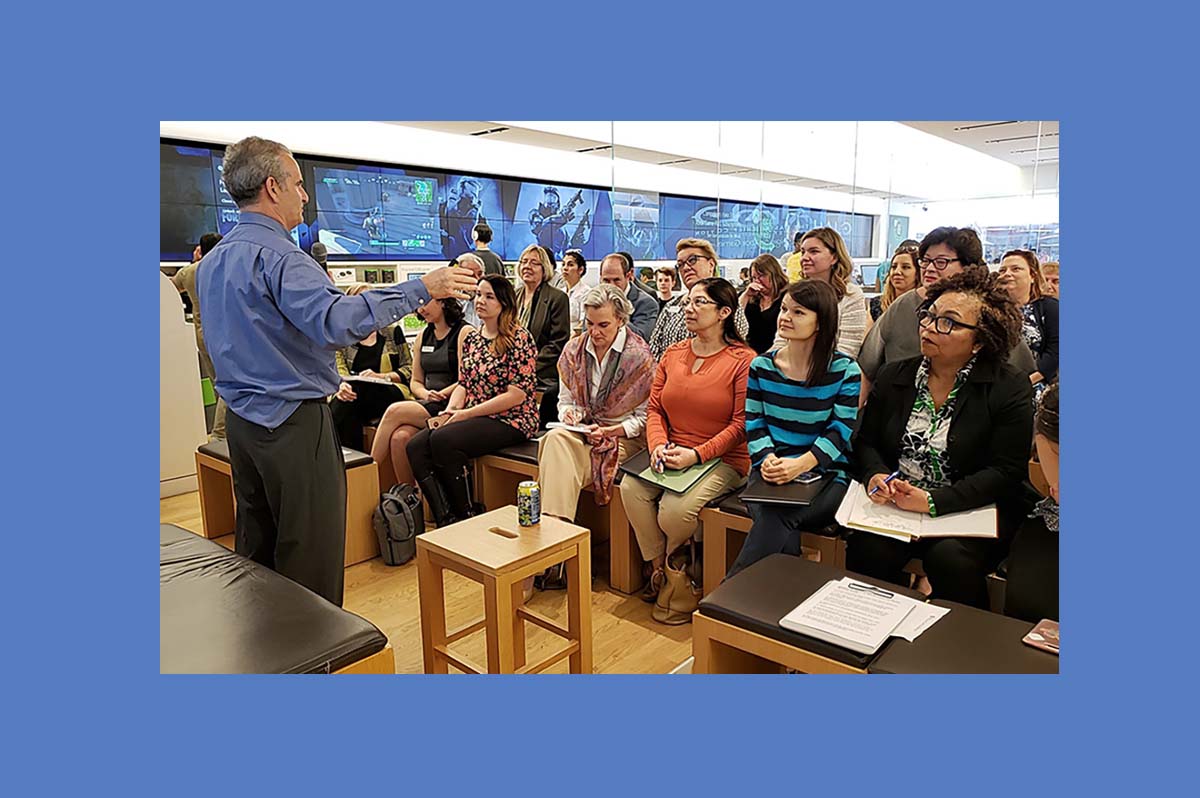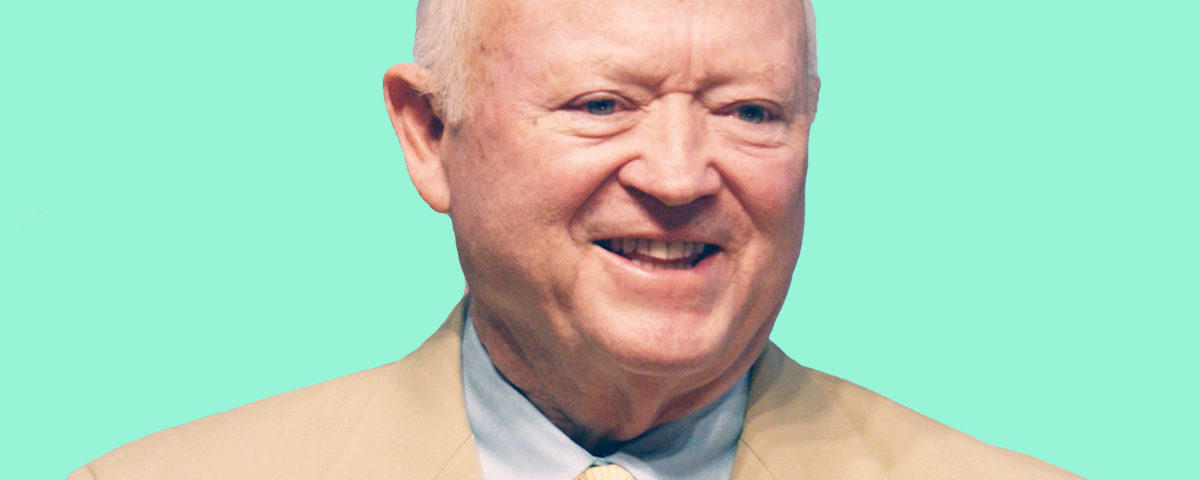
Coronavirus Nonprofits – Be Informed – The Facts You Need
March 8, 2020
Fundraising – 10 Things I’ve Learned
March 11, 2020Hall Powell Asks, “What’s So Special About Special Events?”

Hall Powell asks the question “What’s so special about special events?” Let’s hear what this veteran fundraiser has to say:
In my more than 36 years as a fundraising professional I was privileged and blessed to serve three major healthcare institutions as the chief development officer for a period of twelve years, and an additional twenty–two years serving the nonprofit sector as a consultant to an array of organizations, helping them to build successful, comprehensive fundraising programs and to achieve their fundraising goals. Throughout those years I have observed that many nonprofit organizations (I lean toward saying “most”) gravitate toward making special events and grant-seeking as the primary focus for their fundraising efforts; added to that mix could also include direct mail. And many organizations do not have major gifts, individual giving, as a component of their fundraising activities.
A few years ago, as a consultant, I was helping a major teaching and research medical center to plan for a major fundraising campaign to raise $37 million. They had a foundation that was the fundraising arm of the medical center but they had never gone to their community to raise that much money. In fact, they had a staff of six people who were raising about $2 million a year conducting 12 “special events.” One event, for the children’s hospital, raised $1 million annually. The remaining eleven events raised another $1 million collectively. The foundation staff was not experienced in raising five, six, or seven figure gifts from individual donors, and this would be needed in order to launch and succeed in conducting a successful fundraising campaign.
The medical center asked me to restructure the foundation to be able to not only raise $37 million but also to develop a comprehensive fundraising program for ongoing philanthropic support for the nonprofit medical center. We achieved both goals within four years. But maybe the “real story” is what happened with the 12 “special events.” Let’s begin with a “big picture” view of American philanthropy.
According to Giving USA Americans gave $ 427.71 billion to charitable organizations in 2018. Seventy-Seven percent of that total was given by individuals (including estate giving). Eighteen percent came from Foundations and five percent from Corporations. “Show me the money!” The greatest prospective source of philanthropic giving is from individuals, not foundations and corporations. While you do not want to exclude them from a comprehensive fundraising program, quite the contrary, you do want to maximize every opportunity to access and increase giving from individual donors, including reinventing how you approach private foundations and businesses, and how you conduct special events, Private foundations are really mechanisms for people of means to distribute their charitable giving, Successful corporate fundraising should also be a people-to-people solicitation. For organizations that seek government grants, my advice would be not to cease that activity but don’t be totally dependent on that source of revenue. That source is subject to change. OK, that is enough of the “big picture,” what about Special Events?
When I assumed the leadership role in transforming the medical center’s foundation one of the first things I did was to begin examining the twelve existing events to determine whether or not they were “special.” What do I mean? To answer that question let’s start with the definition of Special Event:
Adjective: Better, greater, or otherwise different from usual.
Noun: A thing, such as an event, product or broadcast that is designed or organized for a particular occasion or purpose.
In my opinion, after 36+ years in this profession most nonprofit organizations would identify their fundraising events as noun rather that an adjective type of event. What do I mean? Most are the noun definition: “A thing.” An event to raise money, rather than the adjective version: A “better, greater, or otherwise different from usual” event for the purpose of cultivation, developing and sustaining current and prospective donors.
I certainly understand the importance of putting on special events that many view as “friend-raisers.” These kinds of events have the ability to bring attention to your organization. However, the greatest challenge of special event fundraising often comes AFTER the event. As I often ask development officers, “What do you do with that list of attendees following the event? As I began asking that same question of my staff of the medical center’s foundation it became evident that the only one of the twelve annual events was “special” as an adjective. It was special because it was a planned and managed Children’s Miracle Network annual event. The other eleven?
What I discovered is that they were staff driven without budgets and no estimates of return on investment. For the most part, while the purpose of the events was to raise money to help fund medical programs within the medical center and/or the community, they were very time-consuming for staff and produced a very minor net figure of philanthropic revenue for the intended purposes. There was “good will” for a few wealthy volunteers who were entertaining their friends with fun, fundraising events at the expense of the medical center, and attendees had a “good time,” Relatively speaking, not much money was raised compared to the potential that was “in the room. Let me explain.
It was not an easy transition to cull out events that were not justifiable from an ROI perspective because some of them were “sacred cows” and we had to be very sensitive to important relationships involved, both staff and volunteers. We re-imagined our special events to make them truly special for centers of excellence within the medical center’s major programs: Heart, Cancer, Women and Children, Rehabilitation, Research, and Education. Remember I said that the twelve events were raising collectively $2 million a year, with the Children’s hospital alone raising $1 million. By keeping the one truly special event (Children’s Miracle Network) and reducing the other eleven events to five authentic “special events,” we raised in excess of $12 million in the first year of the transition from the “Noun Version” to the “Adjective Version” of special events – from “A Thing” to “The Greater.” We defined a compelling Case for Support for each event, did our prospect research for attendees who could be potential major donors and/or annual donors, and planned for follow ups with selected attendees after the events.
Therefore, the starting point for special events is being clear and strategic from the very beginning about your goals – and I would suggest that your goal should be as much about identifying and developing individual major donors as it about raising a specific dollar amount.
I conclude with one very important observation and admonition. First, I believe that the primary reason so many development professionals and their volunteers (e.g., board members, campaign committee members) are reluctant to solicit individual gifts face-to-face is the fear of asking. We would need another article to do justice to the discussion of this subject, therefore I will be brief.
To overcome the anxiety of making the ask you must realize that, if you have a worthy cause and a compelling case for philanthropic support, you are obligated to offer the opportunity to give to a potential donor whom you have identified as a qualified prospect, as regards his or her need to give to something that will bring them a sense of joy as a result of their gift. Our responsibility as fundraising professionals is to be “honest brokers.”
We are duty bound, morally and professionally, to bring together a worthy cause with a willing donor. Sometimes that might result in directing that donor, helping them to find a recipient of their generosity, even if it means giving to another organization. Realize that your “asking” is actually a gift of love. You are offering the donor the opportunity to fulfill their need to give. Yes, generous donors need to give. My friend Doug Lawson wrote a wonderful book years ago with that title: Give to Live. His premise was that giving creates such a joy and sense of well being within donors that they actually live longer. A study at Duke University validated the principle: People who give (money, time, and acts of kindness) live longer than those who don’t. Be an “Honest Broker.” A lot of people might live longer…including you.
H. Hall Powell, Jr., MBA, CNC
Senior Vice President
Development Systems International
To learn more about Hall Powell VISIT HERE
To meet Hall Powell VISIT HERE
Hall Powell has served as Senior Vice President of Development Systems International (DSI) for more than a decade and has 34 years of fundraising experience, including 19 as a fundraising consultant. He has provided campaign and development counsel to a wide variety of institutions throughout the country, with special emphasis in the healthcare field. Prior to joining DSI, Hall was senior consultant with the fundraising consulting firm Alexander Hass of Atlanta, Georgia. Previously, Hall served as the Executive Vice President of the Memorial Health Foundation, Inc. in Savannah, Georgia, and the founding Executive Director of the New Hanover Regional Medical Center Foundation, Inc., in Wilmington, North Carolina. He spent more than four years as the founding Director of the Amethyst Foundation in Charlotte where he played a significant role in the development of a nonprofit management seminar for Winthrop University. He also served as Director of Graduate Administration at Winthrop and was responsible for directing the Executive MBA Program as an Associate Professor in the Management Department. A seasoned lecturer in the nonprofit sector, Hall has also been an instructor with the Duke University Nonprofit Management Seminar. A Certified fundraising Executive, Hall Powell has served on the national board of directors of the National Society of Fundraising Executives, now known as the Association of Fundraising Professionals (AFP). He has also been instrumental in forming two AFP chapters. He holds an undergraduate degree from Guilford College and an MBA from Winthrop University. Hall Powell also engaged in graduate studies at Columbia International University. In his role as a fundraising counselor, Hall Powell is a strong advocate of the underlying philosophy of “donor-centered fundraising,” meeting the need of the donor to give, not putting the needs of the nonprofit organization as the primary motive for the donor/institution relationship. With this underlying philosophy for building comprehensive fundraising programs for institutions he served as Chief Development Officer, and for those he serves as fundraising counsel, he supports the Major Gifts Ramp Up model. The model, accurately presented in 13 chapters built upon tried and proven best practices for successful major gifts fundraising, emphasizes building capacity for the nonprofit organization and long-term donor relationships.
